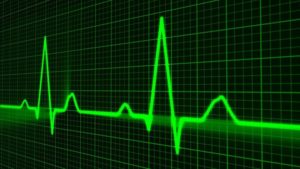How to Treat Coronary Artery Disease
Coronary artery disease rarely “just happens”. Our lifestyle, including diet and exercise, along with genetics, stress, and other health issues such as high blood pressure and diabetes contribute to the progression of heart-related diseases.
Perhaps you have been feeling winded when you walk fast or become unusually sweaty when you make your way up a flight of stairs. Or, maybe you are experiencing chest pain that comes and go (often referred to as angina) or heart palpitations.

After consulting with your cardiologist about these types of concerns, the next step generally is noninvasive testing. The hope is that the test results will provide your doctor with important information about what is happening inside your body. Depending on the outcome, your cardiologist might prescribe medication, lifestyle changes or will order additional testing.
The echocardiogram, the stress test and the nuclear stress test are the three most common tests that cardiologists order. Below is a closer look at these tests.
Echocardiogram
An echocardiogram, often called an “echo”, is a painless test that uses an ultra-sound machine to take picture of the heart muscle and values. Your doctor will be able to assess the overall function of the heart and how well blood is circulating through the vessels and valves. Often, the cardiologist is checking to see if stenosis (plaque build up or hardening of the arteries) is present and if there is regurgitation (the values are leaky because they are not closing properly). Undetected congenital heart defects and enlarged heart muscle can be seen, too.
Stress test
A stress test is administered as a patient walks on a treadmill and a cardiologist monitors heart function during various stages of exertion, including no activity. It is not unusual for a patient who does not experience symptoms of cardiovascular disease while at rest to experience them when there is a demand for oxygen during periods of activity. These symptoms can signal that there is a blockage present in the cardiac system.
A vessel must be 70 percent blocked before it is detected on a stress test. Women should be aware that blockages in males are detected more frequently than blockages in females.
Nuclear Stress Test
A nuclear stress test uses a radioactive dye and an imaging machine to visualize blood flow when the heart is at rest and artificially active. While the patient is not active, a chemical is injected that causes the heart to act as if it is active. This helps the doctor to watch the blood’s flow with a nuclear tracer. Images of the heart at rest are compared to the heart when active, showing areas with poor flow or damage.
There are many reasons to order a nuclear stress test, such as the treadmill stress test is not conclusive, or a patient is unable to walk fast enough to exert the heart appropriately. This test is 90 to 95 percent accurate in identifying significant blockages.
A Coastal Cardiovascular Care cardiologist administers these tests as well as other circulatory tests in our Encinitas office. Patients appreciate that they do not have to travel to an off-site location for the tests and that their cardiologist is present.
Dr. Salman Mehboob is an interventional cardiologist with Coastal Cardiovascular Care, 700 Garden View Court, Suite 204, Encinitas, CA 92024. For more information call (760) 452-6334 or go to www.coastalcardio.com.
Location
700 Gardenview Court, Ste 204
Encinitas, CA 92024
Contact Us
(760) 452-6334
Hours
Office: By Appointment Only
Patient Portal
Access Here
